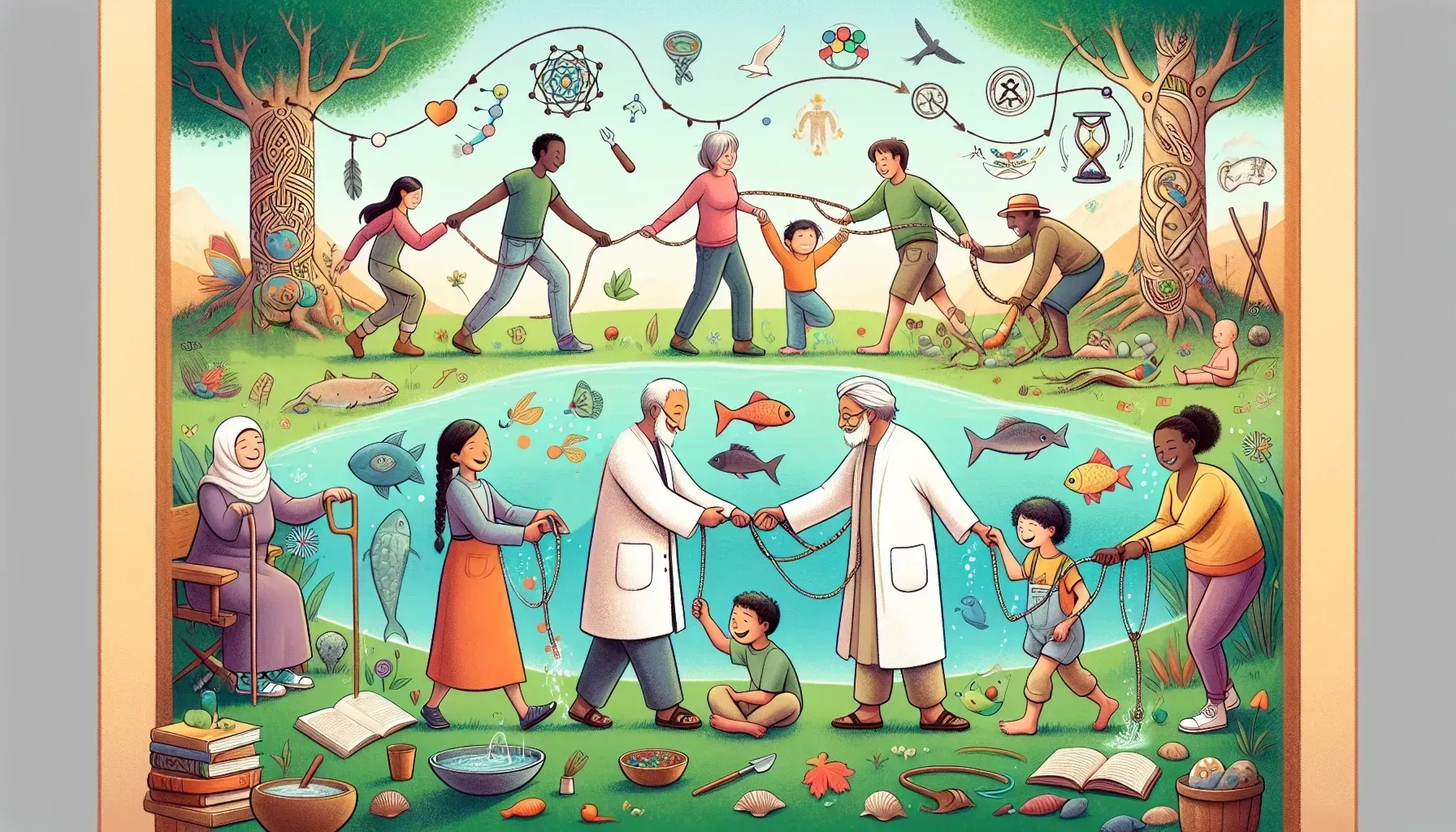Honoring Traditions: Integrating Time-Honored Wisdom into Modern Autism Care

The world of autism care is continuously evolving, embracing the latest advancements in science and technology. However, it's essential to recognize that traditional wisdom has an enduring place in nurturing autistic children. As we look to the future of autism care, there's a growing emphasis on integrating ancestral practices with modern therapies to provide holistic support.
Integrating Traditional Wisdom in Autism Care
Autistic children come from diverse cultural backgrounds, each with its unique traditions and wisdom. It's crucial to acknowledge the wealth of knowledge embedded in these traditions and their potential to enrich contemporary autism care.
The Importance of Ancestral Practices in Modern Support
Through generations, communities have developed nuanced approaches to support individuals with unique needs, including those with autism. These time-honored practices encompass a deep understanding of human behavior, sensory stimulation, and emotional well-being – elements that are fundamental in caring for autistic children.
As we envision the future landscape of autism care, there's a compelling need to bridge these generational approaches with modern methodologies. By inheriting and adapting traditional wisdom, we can create a more inclusive and culturally sensitive framework for supporting autistic children across diverse communities.
Adapting Generational Approaches for Autistic Children
The cultural heritage of diverse societies holds invaluable insights into nurturing and empowering autistic children. Traditional healing practices, sensory therapies, and community-based support systems often have roots reaching back centuries.
Looking ahead, it is imperative to embrace cultural heritage as an integral part of autism care. By incorporating traditional wisdom into modern interventions, we can foster a sense of belonging and resonance for autistic children within their cultural contexts while enriching the overall quality of their care.
Cultural Heritage's Role in Autism Support
In the pursuit of comprehensive autism care, it's vital to respect the roots from which traditional practices stem. These cultural traditions offer profound perspectives on holistic well-being, resilience, and communal support, aligning closely with the principles of modern autism therapies.
As we integrate traditional wisdom into contemporary autism interventions, we honor the essence of cultural heritage while enhancing the effectiveness and inclusivity of our approach. This amalgamation not only nurtures autistic children in culturally affirming ways but also facilitates greater engagement and receptiveness within their communities.
Incorporating Cultural Traditions into Therapies
The legacy of ancient practices holds profound relevance in shaping the holistic development of autistic children. From mindfulness techniques to rhythmic movement patterns, these timeless methods offer a deeper understanding of sensory modulation and emotional regulation – critical aspects in the well-rounded care of autistic individuals.
Looking forward, it is imperative to preserve these legacies by actively integrating them into therapeutic modalities designed for autistic children. By doing so, we expand their access to a broader spectrum of beneficial interventions rooted in centuries-old wisdom.
The transformative potential of traditional methods in autism care is a beacon guiding us toward more encompassing support systems for autistic children. These methods have demonstrated resilience across generations, embodying profound insights into facilitating communication, emotional expression, and overall well-being.
Enhancing Holistic Development with Ancient Practices
As we navigate the future horizons of autism care, harnessing the power of traditional methods alongside modern innovations stands as a promising avenue for transformative progress. By acknowledging their efficacy and relevance, we can establish a harmonious blend that amplifies the impact of interventions designed to nurture and empower autistic children.
In conclusion, as we advance into the future of autism care, the integration of time-honored wisdom with contemporary practices emerges as an imperative pathway. The fusion of ancestral traditions with modern methodologies not only amplifies the effectiveness of support systems but also cultivates a deeper sense of cultural affirmation for autistic children and their families. It is through this integration that we honor traditions while uplifting the prospects for holistic growth and well-being within the autism community.
Frequently Asked Questions
Ancestral practices provide valuable insights that enhance contemporary autism support. By integrating these time-honored methods with modern therapies, caregivers can offer holistic care that respects cultural backgrounds and traditions, ultimately enriching the support provided to autistic children.
Traditional methods have shown resilience over generations, offering profound insights into communication and emotional expression for autistic children. By harnessing these practices alongside modern innovations, caregivers can create more inclusive and effective support systems that cater to the unique needs of each child.
Incorporating cultural heritage into autism therapy fosters a sense of belonging for autistic children within their communities. It enriches their care by aligning therapeutic approaches with their cultural contexts, promoting emotional well-being and enhancing overall development through culturally affirming practices.
Check Out These Related Articles

Unveiling the Spectrum of Therapies: A Newcomers Guide to Supporting Autistic Children

Crafting Empathy: Using Personal Narratives to Connect with Autistic Children

Implementing Relaxation Techniques for Calming Autistic Children
